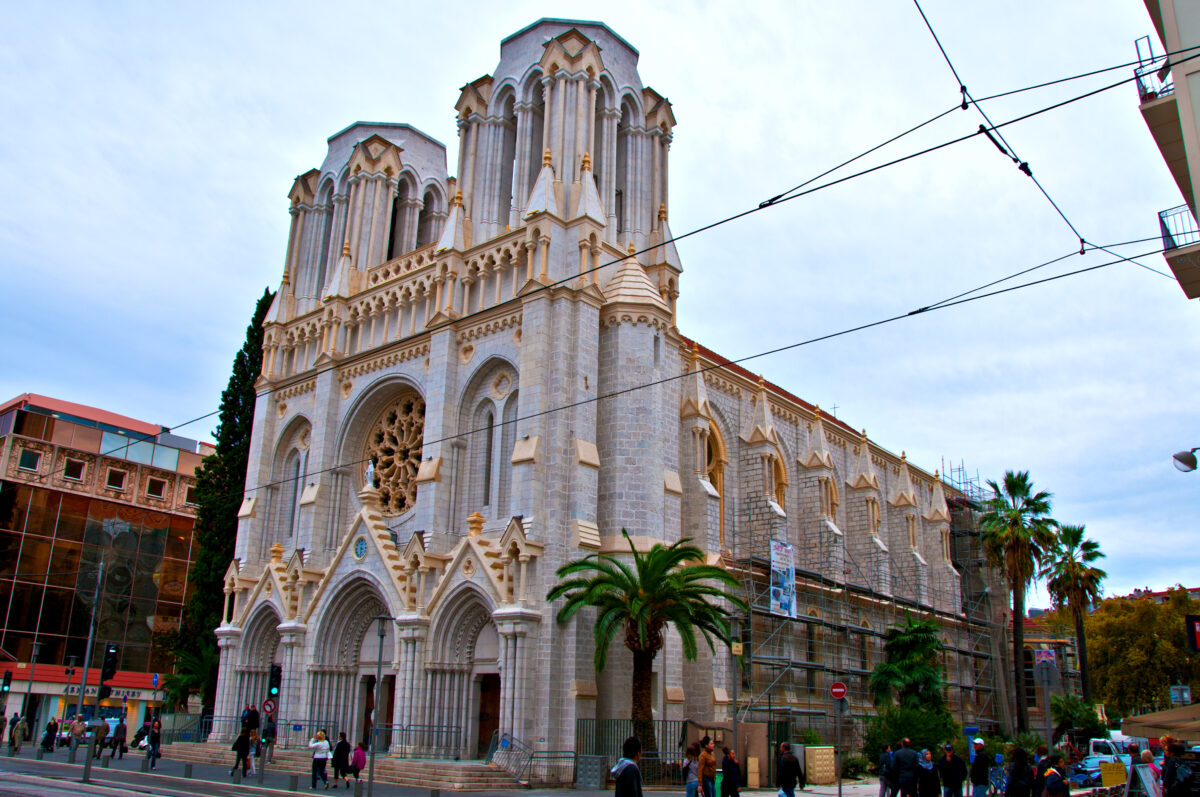The specter of radical Islam looms large in France and presents the French government with a complex challenge of monumental proportions.
Less than a month after President Emmanuel Macron delivered a speech warning that Islamic radicalism and “Islamist separatism” pose serious problems and that legislation is necessary to address them, a jihadist identified as a 21-year-old Tunisian national burst into a church in the southern city of Nice, the 19th century neo-Gothic Notre Dame basilica, and wreaked havoc.
Shouting “Allahu Akbar,” he murdered three worshipers in an undisguised assault on Christianity and in a grisly replay of a previous event elsewhere in France.
Four years ago, two Muslim men armed with knives slit the throat of a priest celebrating Mass in a church in Normandy. And in the same year, in Nice, a jihadi drove a truck into a crowd of pedestrians, killing 86 people.

The latest jihadist attack occurred two weeks after a French teacher, Samuel Paty, was beheaded by an 18-year-old Russian Chechen, Abdoullakh Anzorov, in a suburb north of Paris. A Muslim, he was offended by cartoons of the Prophet Mohammed that Paty had displayed in a class on free speech.
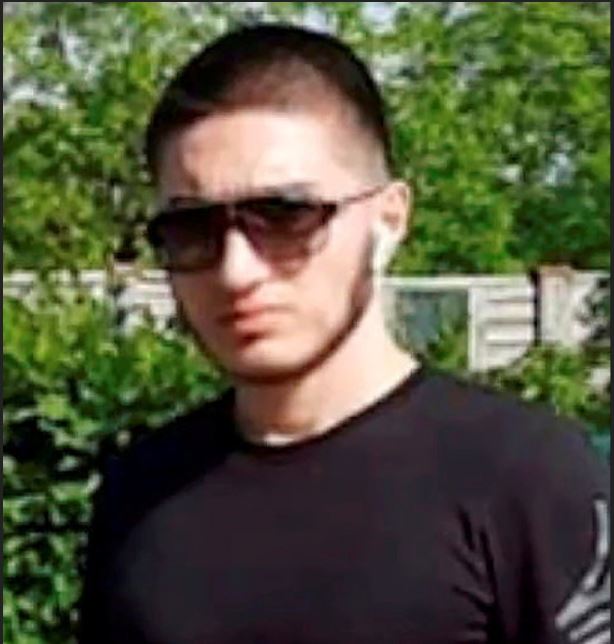
In the aftermath of Anzorov’s murderous rampage, French security forces launched nation-wide raids against suspected Islamic extremists, temporarily closed a major mosque and shuttered more than 50 Muslim aid groups.
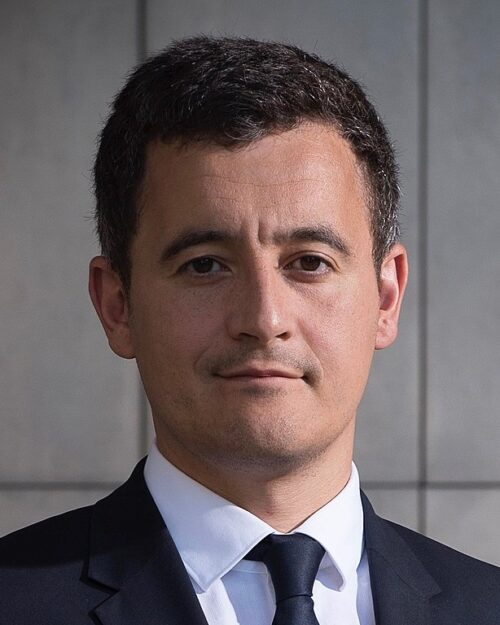
Prime Minister Jean Castex said that “radicalized individuals” had been targeted. Interior Minister Gerald Darmanin denounced jihadists like Anzorov, who was fatally shot by police, and warned of “the enemy within,” thereby underscoring a major issue confronting France today.
Muslims comprise upwards of 10 percent of its population, and while the vast majority are law-abiding, peaceful citizens, a minuscule minority diverge from this pattern. Alienated from their French roots and steeped in the tenets of Islamic fundamentalism, some are prepared to vent their rage on non-Muslims.
In the past decade, homegrown Muslim jihadists, was well as the Islamic State organization, have conducted more than 30 terrorist attacks in France, killing some 250 civilians and police.
Anzorov arrived in France at the age of six, attended French schools and seemed reasonably integrated into French society. Said and Cherif Kouachi, the two brothers of Algerian descent who attacked the Parisian offices of Charlie Hebdo — the satirical magazine that published caricatures of the Prophet Mohammed — were also the products of the French education system.
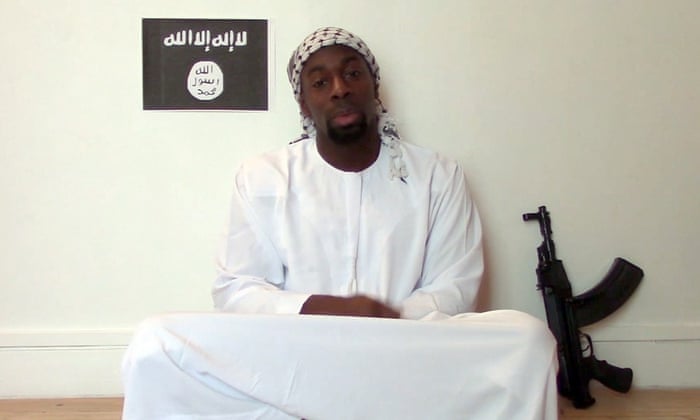
Ahmed Coulibaly, the French-born jihadist who attacked a kosher supermarket in Paris shortly afterward, was a Muslim of African descent. Mohammed Merah, an Islamic State acolyte of Algerian origin raised in France, killed several soldiers and three students in a Jewish school in Toulouse.
These particular incidents occurred from 2012 to 2015.
Anzorov, the Kouachis, Coulibaly and Merah were essentially cut from the same cloth.They were educated to uphold French values, including secularism and freedom of speech, yet they rebelled against these principles in fiery bouts of violence.
Their motives have yet to be fully determined. Did they lash out because they had experienced discrimination in the job market? Or had they been seduced by the allure of radical Islam?
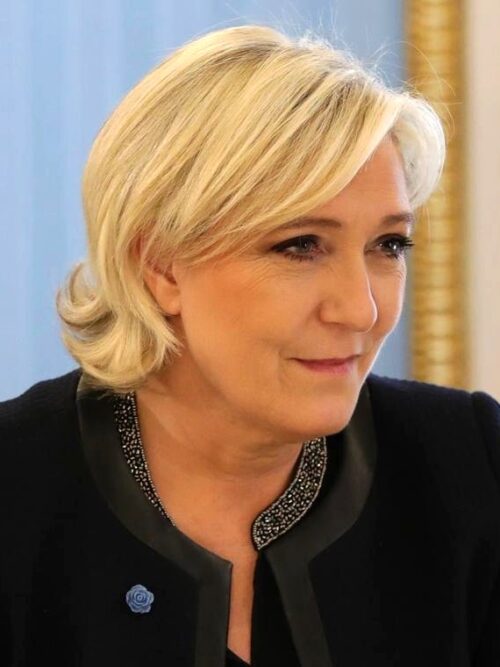
Whatever the case, French politicians on the far-right, notably Marine Le Pen, will surely try to capitalize on the disaffection that simmers in France’s Muslim community, the largest in Europe. “This situation calls for a strategy of reconquest,” she said recently. “Islamism is a bellicose ideology whose means of conquest is terrorism.”
The next presidential election in France is due to take place in 2022, and Le Pen will doubtless attempt to draw votes away from Macron, a centrist who has promised to end home schooling among French Muslims and the practice of importing imams, particularly from Saudi Arabia and Turkey. In addition, Macron has called for an “Islam of enlightenment” and “an Islam that can be at peace with the republic.”
To no one’s surprise, the recent raids against Islamic radicals authorized by Macron were lambasted by Turkish President Recep Tayyip Erdogan, an Islamist who portrays himself as a defender of Islam.
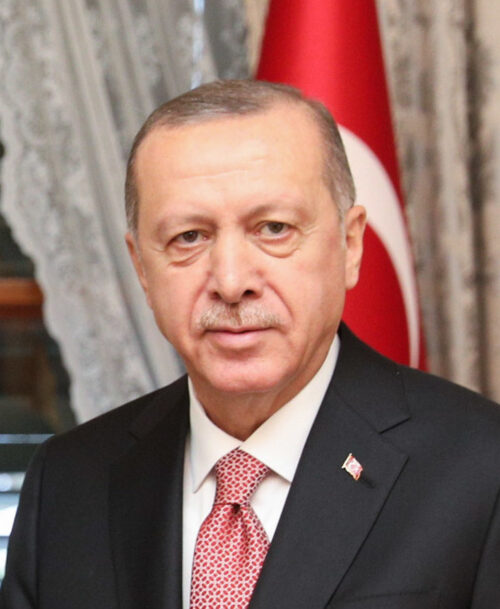
Condemning France’ crackdown on radical Islam, Erdogan called for a boycott of French exports and personally insulted Macron. Claiming Macron requires “mental treatment, he added, “What is the problem of this person Macron with Muslims and Islam?”
Piqued by Erdogan’s outburst, France recalled its ambassador in Turkey in an unprecedented move.
Not content with this blistering denunciation of Macron, Erdogan went on the offensive again. “The rising Islamophobia in the West has turned into a wholesale attack on our book, our prophet and everything we consider holy,” he declared.
Invoking the Holocaust and the slaughter of Muslims to justify his position, he said, “The crimes against humanity committed against Jews 80 years ago, the acts against our Bosnian siblings in Srebrenica just 25 years ago, are still in the memory.”
In the wake of Erdogan’s fusillade, further tension erupted when Charlie Hebdo published a front-page cartoon mocking Erdogan. It showed Erdogan, clad in underwear, lifting the skirt of a buxom Muslim woman.
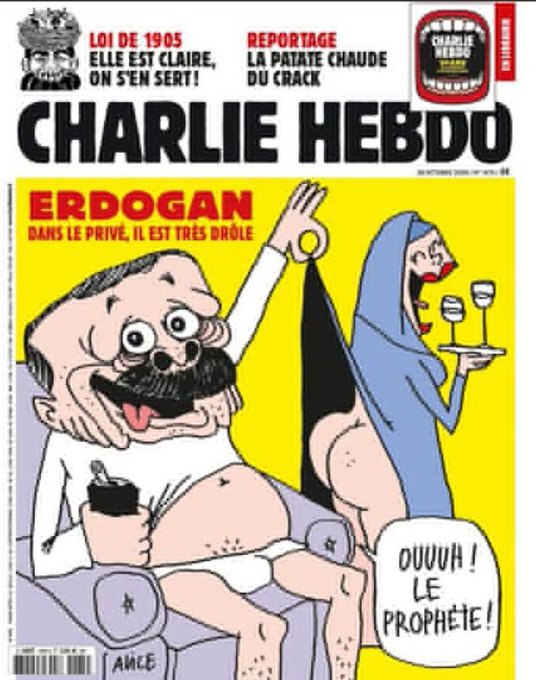
Erdogan’s spokesman, Ibrahim Kalin, denounced the cartoon as devoid of “morality and decency” and reflective of “a sick mentality.”
The chief rabbinate of Turkey, representing 18,000 Jews, condemned it as well.
Francis Kalifat, the president of CRIF, the umbrella organization of the Jewish community in France, issued a strong statement condemning Erdogan as “the tyrant of Ankara.” CRIF’s vice-president, Gil Taieb, said that Islamists have declared war on France. “We stand united against Islamist barbarism,” he tweeted.

The measures France has taken against Islamic extremists of late have triggered a backlash in the Muslim world.
The prime minister of Pakistan, Imran Khan, accused Macron of encouraging Islamophobia. Saudi Arabia’s official press agency, rejecting “any attempt to link Islam and terrorism,” castigated Charlie Hebdo’s caricatures.

The former prime minister of Malaysia, Mahathir Mohamad, caused widespread indignation and outrage when he said, “The French in the course of their history has killed millions of people. Many were Muslims. Muslims have a right to be angry and to kill millions of French people for the massacres of the past.”
It’s clear that historic resentments and grievances, born of the conflict pitting Christianity against Islam, have opened a yawning rift between the West and the Muslim world. This is an unfortunate, ominous and dangerous development, but it is nothing new. Islam and Christianity have been at odds for centuries.
